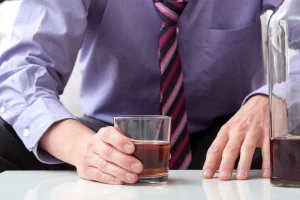Blood thinners such as warfarin, heparin, and aspirin can cause you to bleed and get bruises more often. Steroids and some cancer drugs (chemotherapy and targeted therapy) may also lower your platelet levels, which can cause you to bleed and get bruises more than you usually do. As you age, your skin gets thinner and you lose some of the layer of fat that cushions your blood vessels and protects you from injury. Both of these things mean you may get more bruises, even from a minor bump. If your bruise doesn’t improve within two weeks, or if you start to notice frequent, unexplained bruises—whether you’re drunk or sober—call your doctor.

Signs and Symptoms of Alcoholic Neuropathy

The early signs of alcoholic liver disease are vague and affect a range of systems in the body. Too much alcohol affects your speech, muscle coordination and vital centers of your brain. A heavy drinking binge may even alcohol and bruising cause a life-threatening coma or death. This is of particular concern when you’re taking certain medications that also depress the brain’s function. The liver can usually repair itself and generate new cells.
Initial Treatment for Early Alcoholic Liver Disease
If you’re having nosebleeds for no reason, if your gums bleed a lot after you brush or floss, or if small cuts or scrapes seem to bleed heavily, call your doctor. The liver makes proteins that the blood needs for clotting, so if it’s not doing its job, you may bleed or bruise more easily. It could be a sign that you’ve got a condition called cirrhosis, which is scarring of the liver. When you get an injury, blood may leak from the vessels (veins and capillaries) under your skin. The discoloration you see as a bruise on the surface of your skin is from blood that has pooled in or under your skin. On people with lighter skin tones, bruises may start out red or purple soon after the injury, then turn light brown, green, or yellow as they heal.
Why You Bruise More Easily When You Drink Alcohol
- As the fly slowly ventures deeper into the tube, it starts to lose its footing.
- People with a lengthy history of alcohol misuse might experience loss of balance, pain, tingling, weakness, or numbness after drinking alcohol.
- We don’t mean you woke up with a black-and-blue mark because you bumped into something after one too many cocktails.
- Alcohol and caffeine can sometimes make symptoms worse, Dr. Bart adds.
- If you feel that you sometimes drink too much alcohol, or your drinking is causing problems, or if your family is concerned about your drinking, talk with your health care provider.
- In kidney disease, platelets do not work properly, causing easy bruising.
Cleveland public address announcer Bob Keefer warned fans ahead of the game the following night that they would be prosecuted if they entered the field of play. “The brew-propelled bleacher fans began to hop into the better seats, roam around the park, disturb the bullpens, jump over the fence and onto the field,” Lebovitz wrote. There were streakers, kissers and wannabe prize fighters.
- Von Willebrand disease (VWD) is the most common inherited bleeding disorder, affecting up to 1% of the population.
- Eating a healthy diet, getting regular exercise, and avoiding liver-damaging foods such as fried foods, can also help the liver heal during treatment.
- After hours, a properly cleaned wound can usually wait until morning for your regular doctor to treat it even if you anticipate it might need stitches.
- So, the nerve damage of alcoholic neuropathy is generally permanent and likely to worsen if the person does not stop drinking.
- Finally, a person with an alcohol use disorder will likely give up other activities, because their focus is on drinking.
- An alcohol use disorder is a legitimate medical condition that causes lasting changes in the brain.
- This is swelling and tenderness where your toe bones connect on the bottom of your foot.
- “Fatigue has always been my worst symptom,” Hudson explains.
- They will run blood and urine tests to see if your kidneys are functioning properly.






